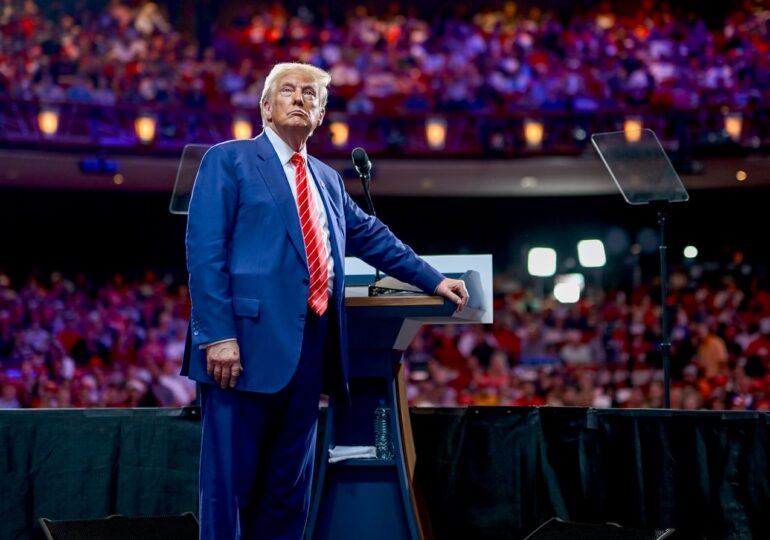Trump’s statements about Greenland and the Panama Canal should not be taken as the ramblings of a madman or a bully. The U.S. President-elect is disrupting the world order, and the rest of the world must face this new reality.
At his inauguration on January 20, Donald Trump will speak to Americans about his ideas to make America great again.
He has already given the world a "marching order" when he did not rule out the use of force to take control of Greenland and the Panama Canal, also warning NATO member states that they will need to spend 5% of GDP on defense if they want to remain under the security protection of the United States.
Trump said that the Gulf of Mexico should be renamed the Gulf of America and called Canada the "51st American state," referring to Prime Minister Trudeau as "governor."
In a challenge specifically directed at the United Kingdom, Sebastian Gorka, a senior adviser to Trump, told The Times that "any nation that wants to be seen as a serious ally and friend of the most powerful country in the world should act in a manner that reflects that serious commitment."
Trump's statements regarding the territorial expansion of the United States have received a predictable response. French and German leaders have stated that "borders should not be changed by force." French Foreign Minister Jean-Noel Barrot lamented the "return to the law of the strongest."
Everyone copes with Trump in their own way
Trump's ideas certainly disrupt the world order and present many downsides. However, they should not be considered the ravings of a madman or a loudmouth bully. There is a structure in Trump's digressions. Some allies, especially the United Kingdom, are quietly beginning to adapt to his worldview without reluctance, as reported by Sky News.
In response to the initial eruptions of the "Trump volcano," the British government is changing its foreign policy guard, acknowledging that this is "a time of great uncertainty."
Two veterans of the pragmatic New Labour government have been brought back "into the front line" - Peter Mandelson as ambassador to the U.S., and Jonathan Powell appointed as national security adviser. And a new top diplomat has been installed to lead the Commonwealth and Development Department in the British Foreign Ministry - Sir Olly Robbins, better known as the chief negotiator for former Prime Minister Theresa May with the European Union.
David Lammy, the new Foreign Secretary, said last week: "The peace after the Cold War has truly ended. This is a changed strategic environment, with more conflicts than ever since 1945."
The message, which seems to have reached the British government, is clear: like it or not - an "Britain First" approach is required, following the "America First" model. This may seem obvious; after all, all governments seek to prioritize national interests.
American expansionism, better than Russian or Chinese
Trump's threats to violate international treaties and rules regarding land acquisition in the name of the "national security interest" of the United States are actions of the "if you can't beat them, join them" type.
They provide cover for Putin's invasion of Ukraine and China's ambitions towards Taiwan, but only in retrospect, as post-factum justifications. China and Russia developed their territorial ambitions years ago and pose clear threats to global peace as well as Western interests.
The Chinese and Russian governments are actively hostile and in open competition with Western democratic allies. Through the BRICS organization, they are trying to attract other nations to their side.
If Greenland or the Canal were to fall under Chinese domination, America and its allies would be at their mercy.
Just as in business, Trump's approach to foreign policy is transactional, in his own interest, as expected. His opening statements are negotiating positions to attract attention, not ultimatums, as the source cited indicates.
Trump's demands for increased defense spending by European nations are rhetorically exaggerated - not even the U.S. currently allocates 5% of GDP for defense. However, what he wants to convey is not without importance - given Russian expansionism on the continent, European nations, including the UK, will need to spend more on security to defend themselves.
Trump's noisy demands represent a strong warning, which may make it easier for governments like the British one to gain approval for higher defense spending.
The annual report for global leaders to be presented at the World Economic Forum in Davos at the end of this month acknowledges that their globalist vision will be overshadowed by "a new, more unstable, more unpredictable period of political and geopolitical turbulence."
For Europe, the relationship with Trump's America will be more complicated, especially for the UK, now on its own outside the EU.
Professor John Bew, who conducted the security assessment for the last Conservative government, summed up the situation: "In this era of brute power, one thing is certain: fortune favors the bold," he recently wrote.
The UK, like its European allies, will have to work with Trump. The United States will remain an indispensable, albeit inadequate ally against Chinese and Russian expansion, in a dangerous world, concludes the analysis mentioned.
T.D.

